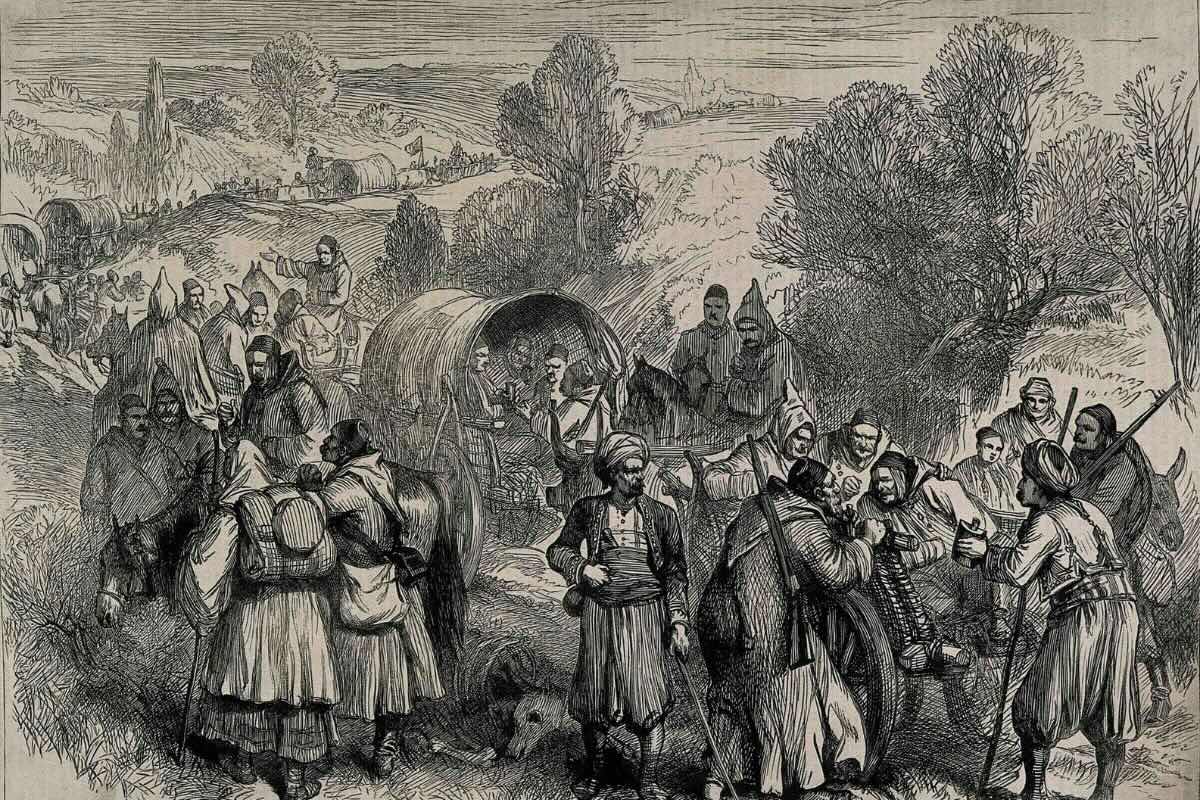
The Serbo-Bulgarian War of 1885 might not be as well-known as other European conflicts, but it played a crucial role in shaping the Balkans. This brief yet intense war between Serbia and Bulgaria lasted from November 14 to November 28, 1885. Why did these two nations clash? The main reason was Bulgaria's unification with Eastern Rumelia, which upset the balance of power in the region. Serbia, feeling threatened by Bulgaria's growing strength, decided to strike. Despite being outnumbered, Bulgaria's strategic brilliance led to a surprising victory. This war not only solidified Bulgaria's unification but also highlighted the shifting alliances and tensions in the Balkans. Dive into these 30 fascinating facts to understand the key events, figures, and outcomes of this pivotal conflict.
Key Takeaways:
- The Serbo-Bulgarian War, fought over unification and territorial control, shaped the future of Serbia and Bulgaria, influencing their political and cultural identities.
- The conflict highlighted the importance of military tactics, diplomatic efforts, and national unity, leaving a lasting impact on the Balkans and modern-day relations between the two countries.
Background of the Serbo-Bulgarian War
The Serbo-Bulgarian War was a brief but significant conflict in the Balkans during the late 19th century. It shaped the future of both Serbia and Bulgaria, influencing their political and territorial landscapes.
- The war took place between November 14 and March 3, 1885-1886.
- It was primarily fought over the unification of Eastern Rumelia with the Principality of Bulgaria.
- Serbia declared war on Bulgaria, hoping to capitalize on the latter's perceived weakness after the unification.
- The conflict is often seen as a precursor to the larger Balkan Wars that would follow in the early 20th century.
Key Battles and Strategies
Understanding the main battles and strategies employed during the Serbo-Bulgarian War provides insight into the military tactics of the time.
- The Battle of Slivnitsa was the most significant engagement, often called the "Battle of the Captains."
- Bulgarian forces, though initially outnumbered, managed to repel the Serbian army.
- The use of railways for rapid troop movements was a notable strategy during the war.
- The Serbian army underestimated the Bulgarian military capabilities, leading to their defeat.
Political Implications
The war had far-reaching political consequences for both nations involved, altering their trajectories in the years that followed.
- The Treaty of Bucharest, signed on March 3, 1886, ended the conflict.
- Bulgaria's victory solidified its unification with Eastern Rumelia.
- Serbia's defeat weakened its political standing in the Balkans.
- The war demonstrated the importance of national unity and military preparedness.
International Reactions
The international community closely watched the Serbo-Bulgarian War, with various powers taking sides or remaining neutral.
- Austria-Hungary initially supported Serbia but later pushed for a peaceful resolution.
- Russia, traditionally a Bulgarian ally, remained neutral due to internal issues.
- The Ottoman Empire, which had interests in the region, also stayed out of the conflict.
- Western European powers, including Britain and France, were more focused on their own colonial ambitions.
Military Innovations
The Serbo-Bulgarian War saw the use of several military innovations that would become more common in later conflicts.
- The use of telegraphs for communication was crucial for coordinating troop movements.
- Modern artillery played a significant role in the battles.
- Trenches and fortified positions were used extensively by both sides.
- The war highlighted the importance of logistics and supply lines in modern warfare.
Cultural Impact
The war left a lasting cultural impact on both Serbia and Bulgaria, influencing literature, art, and national identity.
- Numerous songs and poems were written about the bravery of soldiers.
- Monuments and memorials were erected in honor of those who fought.
- The war became a symbol of national pride for Bulgaria.
- In Serbia, it led to a period of reflection and military reform.
Lessons Learned
The Serbo-Bulgarian War provided several important lessons for future military and political leaders in the Balkans and beyond.
- The importance of intelligence and reconnaissance was underscored by the conflict.
- Rapid mobilization and the element of surprise proved decisive.
- Diplomatic efforts can be as crucial as military ones in resolving conflicts.
- National unity and public support are vital for sustaining a war effort.
Legacy of the War
The legacy of the Serbo-Bulgarian War continues to be felt in the region, influencing modern-day relations between the two countries.
- The war is often studied in military academies for its strategic lessons.
- It remains a significant chapter in the history of the Balkans, shaping the identities of both Serbia and Bulgaria.
The Lasting Impact of the Serbo-Bulgarian War
The Serbo-Bulgarian War of 1885 may seem like a distant event, but its effects still echo today. This conflict reshaped the Balkans, influencing national borders and regional politics. Bulgaria's victory boosted its national pride and solidified its independence, while Serbia's defeat led to political changes and a reevaluation of its military strategies.
Understanding this war helps us grasp the complexities of Balkan history and the roots of modern tensions. It’s a reminder of how past events shape present realities. The bravery, strategies, and outcomes from this war offer valuable lessons in resilience and the importance of strategic planning.
By learning about the Serbo-Bulgarian War, we gain insight into the enduring spirit of nations and the intricate web of historical events that continue to influence our world. This knowledge enriches our understanding of history and its ongoing impact on our lives.
Frequently Asked Questions
Was this page helpful?
Our commitment to delivering trustworthy and engaging content is at the heart of what we do. Each fact on our site is contributed by real users like you, bringing a wealth of diverse insights and information. To ensure the highest standards of accuracy and reliability, our dedicated editors meticulously review each submission. This process guarantees that the facts we share are not only fascinating but also credible. Trust in our commitment to quality and authenticity as you explore and learn with us.
